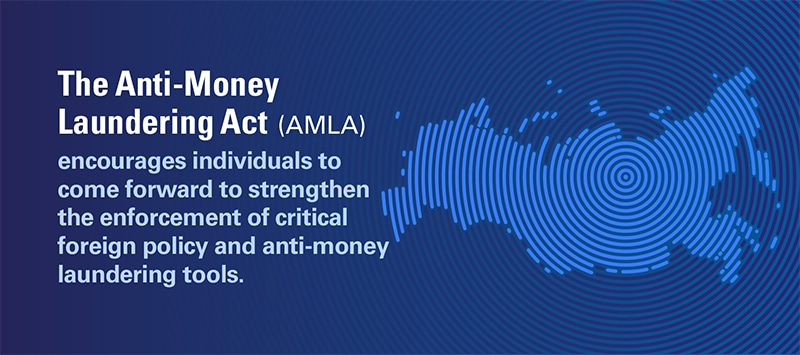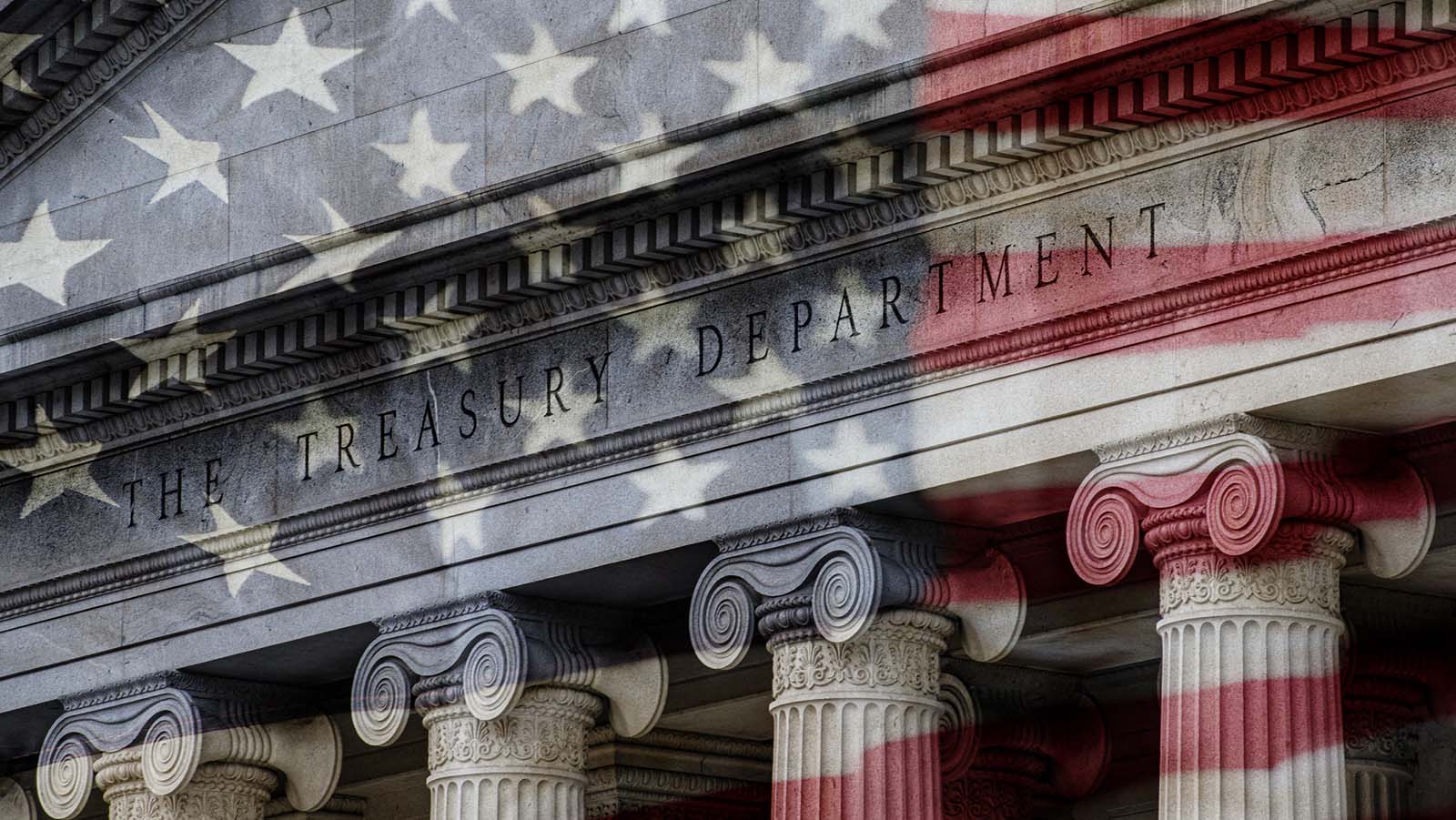Proliferation Financing and The AML Whistleblower Program
The AML whistleblower program incentivizes individuals to report suspected money laundering activities, especially those potentially funding the spread of weapons of mass destruction (WMDs), bolstering the fight against illicit financial practices.
May 14, 2025

This information is provided for educational purposes only by Kohn, Kohn & Colapinto and does not constitute legal advice. No attorney-client relationship is created by accessing this content. Laws and regulations may change, and this material may not reflect the most current legal developments. If you believe you have a whistleblower claim, consult a qualified attorney to discuss your specific circumstances.
Proliferation financing refers to the act of providing funds or financial assistance to individuals, entities, or countries that are involved in the development, acquisition, manufacture, possession, transport, transfer, or use of nuclear, chemical, or biological weapons and their means of delivery. These means of delivery can include missiles capable of delivering such weapons, especially when these actions are in violation of national laws or international obligations.
The purpose of monitoring proliferation financing is to deter the spread of weapons of mass destruction (WMDs) and their delivery systems. International initiatives and treaties, such as the United Nations Security Council Resolutions and the Proliferation Security Initiative, address the issue of proliferation financing, asking countries to adopt domestic measures to prevent and criminalize it.
Many countries have established legal frameworks and programs, such as the Anti-Money Laundering Whistleblower Program, to deter and prevent proliferation financing. Measures taken under this program involve enhanced due diligence, sanctions, or other controls on individuals and entities suspected of being involved in proliferation activities.
If you are aware of money laundering scheme that facilitates proliferation financing, and would like to report your concerns, continue reading to understand your rights and the potential rewards available.
AML Whistleblower Program Overview

The Anti-Money Laundering (AML) Whistleblower Program is an important tool in the fight against illicit financial activities.
The program is designed to encourage individuals who have knowledge of possible money laundering violations, especially those that can fund the proliferation of weapons of mass destruction (WMDs), to come forward and report these activities to the authorities.
By utilizing the inside knowledge, the AML whistleblower program aims to uncover and penalize illicit financial transactions that might otherwise go unnoticed. The AML whistleblower program does not just provide a channel for reporting suspicious activities; it also offers financial incentives.
Individuals who provide valuable information leading to successful legal actions against offenders may be eligible to receive up to 30% of the monetary sanctions collected. These rewards can be substantial, particularly in cases involving large-scale money laundering operations that support the proliferation of WMDs.
Eligibility
Not everyone is automatically eligible for a reward after submitting a tip. There are typically minimum requirements to meet, such as:
- Originality of the Information – for a tip to be considered “original,” it means that the information hasn’t been disclosed in public domains, media, or other reports, and hasn’t been previously presented to the authorities.
- Successful Enforcement Action & Monetary Sanctions – a tip is valuable only if it results in an outcome. This means that based on the information provided, the authorities take legal action against the violators, resulting in penalties or sanctions.
- Threshold for Monetary Sanctions – there’s often a minimum amount set for the collected sanctions or penalties before a reward can be issued. This threshold ensures that the whistleblower program prioritizes and rewards only significant cases.
While a reward can motivate many to come forward with information, these criteria are put in place to ensure the integrity and effectiveness of the whistleblower program.
Reporting Proliferation Financing
If you believe you have information concerning money laundering activities that could contribute to the spread of WMDs or their delivery systems, you can submit a tip to the relevant authorities. Tips can usually be submitted anonymously, though providing contact information can be helpful for any follow-up investigations.
When submitting a tip, it’s crucial to provide as much detailed information as possible, including:
- Entities involved – refers to individuals, companies, organizations, or any other parties that are part of the suspicious activity.
- Nature of each suspicious transaction – a whistleblower must clearly describe the specific actions or patterns that raised your suspicions.
- Dates, times, and amounts – involves giving specific temporal details and monetary values of the suspicious transactions.
- Any other relevant evidence – while your word might trigger an investigation, real evidence can bolster the credibility of your tip and aid in legal proceedings.
Preliminary Determinations
Once you’ve submitted an award application, the designated authority performs a review to evaluate the whistleblower’s eligibility for a reward. Key to this preliminary determination is an assessment of the information’s originality and its significance in uncovering potential violations or illicit activities.
Additionally, authorities try to further understand the whistleblower’s role in the entire enforcement process. This includes recognizing the whistleblower’s efforts in cooperating with the investigation, providing supplementary evidence when needed, and the overall impact their information had in ensuring a successful enforcement action.
Finally, it’s paramount that all predetermined program criteria are adhered to. The authorities verify that the whistleblower has met every stipulated eligibility requirement set out by the program. This comprehensive review ensures that only those truly deserving and compliant with the program’s rules are rewarded.
Final Determinations
After the preliminary determination, there will be a final order that decides on the award claim. If the whistleblower disagrees with the final order, they may have rights to appeal or request reconsideration, depending on the jurisdiction and specific whistleblower program rules.
Hiring Anti-Money Laundering Attorney
Addressing cases of proliferation financing requires navigating a complex web of regulations, international protocols, and financial intricacies. Thus, hiring an Anti-Money Laundering attorney provides several benefits.
Not only are they experts in AML regulations and broader financial systems, they also protect the rights and confidentiality whistleblowers by representing them in legal proceedings. More importantly, proliferation financing often has cross-border implications. AML attorneys, especially those with international experience, bring a global perspective, understanding the intricacies of different jurisdictions and international treaties or agreements.
Our team, working with the National Whistleblower Center and Whistleblower Network News, led a successful grassroots campaign that pushed for the passage of the Anti-Money Laundering Improvement Act. If you’d like to come forward with information regarding proliferation financing, please contact one of our AML attorneys today for a free, no-obligation case evaluation.





